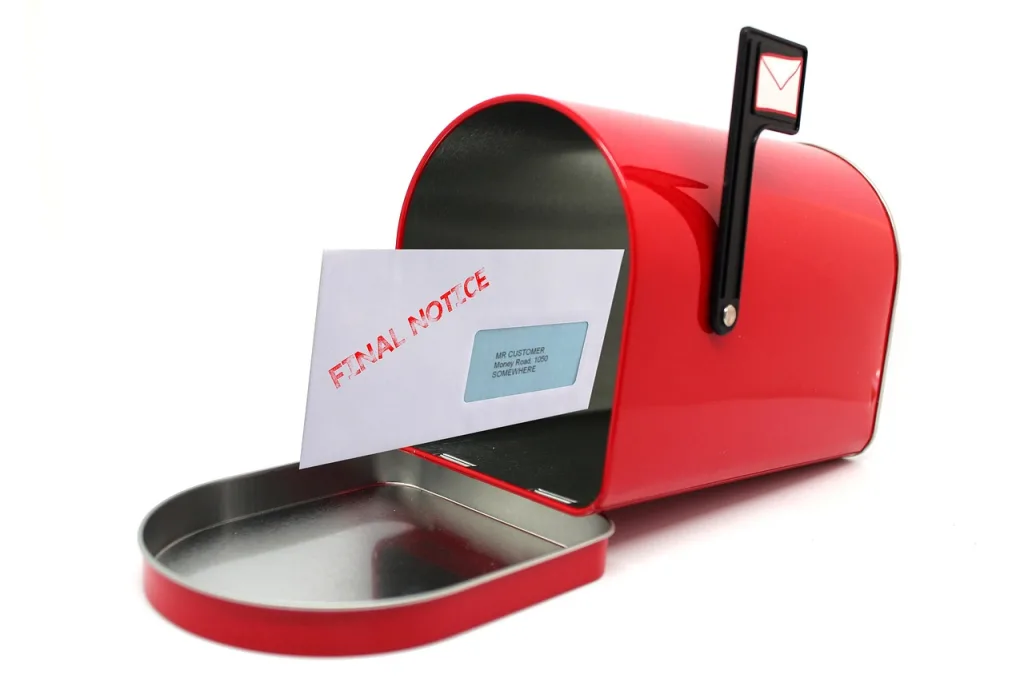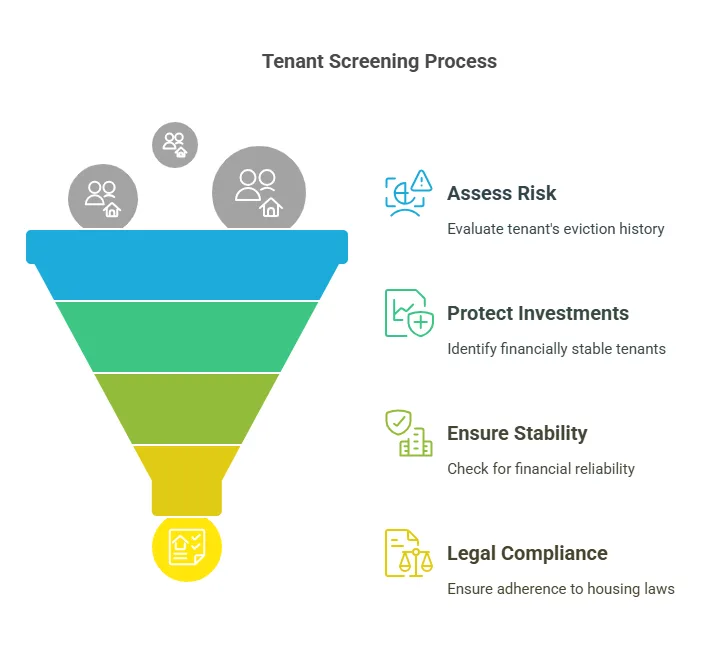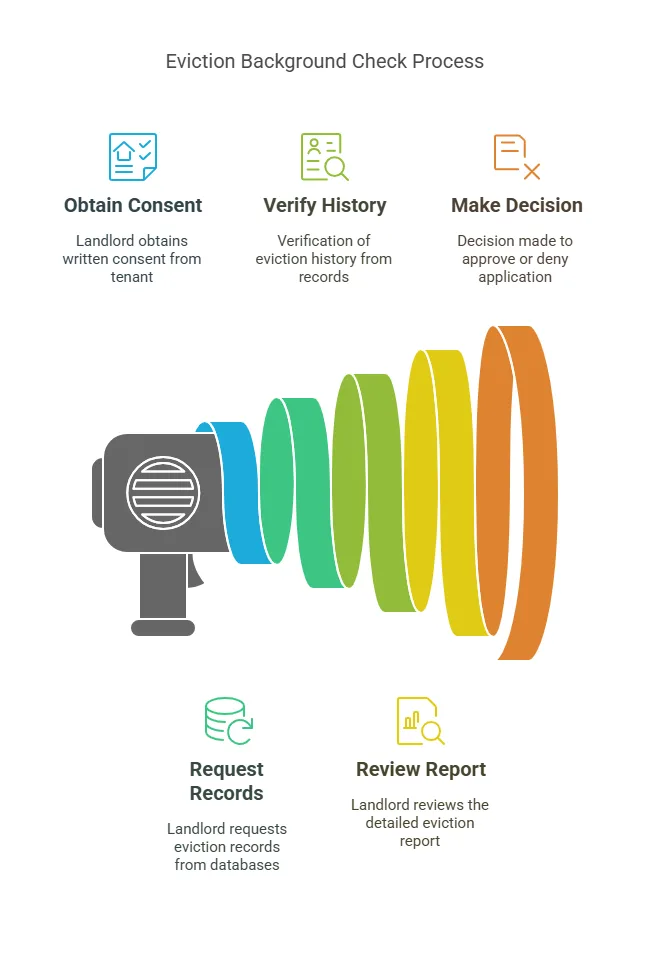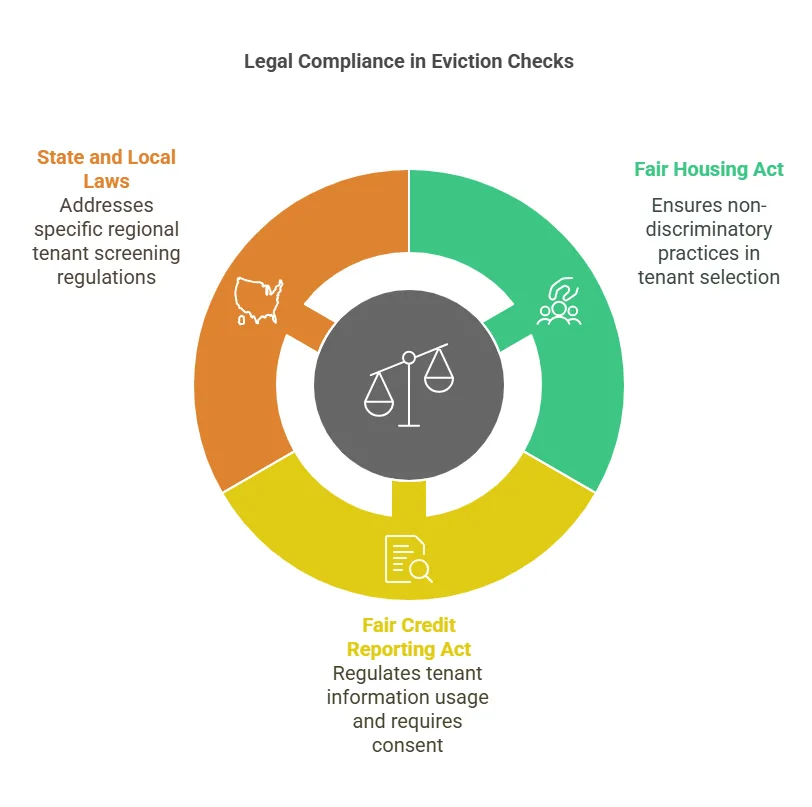Key Factors in Eviction Background Checks

What is an Eviction Background Check?
An Eviction Background Check is a specialized tenant screening tool that landlords and property managers use to review a potential tenant’s rental history, specifically focusing on any past evictions. This check helps determine whether the applicant has been involved in previous eviction proceedings, either as a result of non-payment, lease violations, or other disputes with previous landlords.
Eviction background checks typically focus on public court records, rental histories, and legal actions taken against a tenant. They are an important aspect of tenant screening because they provide landlords with valuable insight into a potential tenant’s past behavior and reliability as a renter.
Why is an Eviction Background Check Important for Landlords and Property Managers?

Eviction background checks are critical for landlords and property managers to assess the risk level of potential tenants. Here’s why:
- Assessing Risk: If a potential tenant has a history of eviction, it may signal future issues, such as non-payment of rent, property damage, or disputes with landlords. This check helps landlords gauge whether the applicant might present similar problems.
- Protecting Property Investments: Property managers want to minimize risks associated with renting. Eviction history is one of the most reliable indicators of a tenant’s future rental behavior. Identifying a history of evictions helps prevent the costly consequences of bad tenants, including repairs, unpaid rent, and legal fees.
- Ensuring Financial Stability: Tenants who have been evicted in the past are often financially unstable, which can lead to difficulties in paying rent on time. An eviction background check can identify applicants who have failed to honor previous leases.
- Legal Protection: Landlords must also comply with legal obligations such as the Fair Housing Act (FHA). By conducting thorough tenant screenings, including eviction checks, landlords can avoid legal issues related to discrimination or wrongful eviction.
Relevance of Eviction History in Tenant Screening
Eviction history is crucial in tenant screening for the following reasons:
- Red Flag for Non-Payment or Lease Violations: Evictions typically result from serious issues such as non-payment of rent, property damage, or repeated violations of lease terms. Knowing whether a prospective tenant has faced eviction helps assess the risk of future lease issues.
- Identifying Patterns of Behavior: A tenant with a history of multiple evictions may suggest a pattern of irresponsible behavior. This could signal that the individual is likely to repeat similar problems in the future.
- Peace of Mind for Landlords: Landlords often face legal, financial, and emotional stress if a tenant is evicted. Eviction background checks give landlords peace of mind by filtering out high-risk tenants before they move in.
Comparison with Other Types of Tenant Background Checks
Eviction background checks differ from other types of tenant background checks in several key ways. Let’s take a look at how eviction checks compare with credit checks, criminal background checks, and rental history checks:
- Credit Checks: Credit checks focus on the tenant’s financial responsibility, such as paying bills, loans, and debts on time. While credit reports are valuable for assessing a tenant’s ability to pay rent, they don’t provide detailed information about a tenant’s rental history or past evictions.
- Criminal Background Checks: Criminal background checks focus on identifying any criminal history, including felonies or misdemeanors. While this check is important for safety, it does not reveal the tenant’s history with landlords, nor does it provide insight into lease violations or evictions.
- Rental History Checks: Rental history checks involve verifying a tenant’s previous addresses, contacting prior landlords, and assessing how well the tenant maintained those properties. While rental history checks provide some context for a tenant’s rental behavior, eviction checks specifically highlight any legal actions taken against them for failing to meet lease obligations.
How Eviction Background Checks Work & Their Benefits
How Eviction Background Checks Work

Eviction background checks are typically conducted by using a tenant screening service or third-party provider. Here’s a breakdown of the process:
- Obtain Consent: Before conducting an eviction background check, landlords must obtain the applicant’s written consent to access their rental history. This is often done through the tenant application form.
- Request Eviction Records: The landlord or property manager will request eviction records from a third-party tenant screening service or check public court records. These records are generally available through county, state, or local court systems.
- Verify Eviction History: The tenant screening service will verify whether the applicant has been involved in any eviction proceedings. This information will be pulled from public databases and court records. The report will include details such as:
- Date of eviction
- Reasons for eviction
- Outcome of the case
- Any outstanding judgments or financial obligations related to the eviction
- Review the Report: After receiving the eviction background check report, the landlord will review the details to assess the applicant’s rental history. A clean report indicates no evictions, while an eviction record might raise red flags depending on the circumstances.
- Make a Decision: Based on the information in the report, the landlord can decide whether to approve or deny the tenant’s application.
Types of Eviction Records Included in a Background Check
Eviction background checks can reveal several types of eviction records, including:
- Formal Eviction Orders: A formal court order to evict a tenant due to non-payment of rent or other lease violations.
- Unlawful Detainer Lawsuits: Legal actions taken by landlords to remove a tenant from the property.
- Outstanding Judgments: If the tenant owes money to a former landlord, this judgment may appear in the eviction record and may include unpaid rent, damages, or court fees.
- Writ of Possession: This legal document grants a landlord the authority to physically remove the tenant from the rental property.
Benefits of Using Eviction Background Checks
Conducting an eviction background check offers several benefits:
- Risk Mitigation: By identifying tenants with a history of evictions, landlords can avoid renting to individuals who may cause future legal or financial issues.
- Legal Protection: Eviction records help landlords assess whether the applicant might engage in unlawful behavior or violate lease terms. It also provides legal protection if any disputes arise.
- Improved Tenant Selection: Eviction background checks offer landlords a more complete picture of an applicant’s rental history, helping them select tenants with a clean track record and greater reliability.
- Cost Savings: The cost of evicting a problematic tenant can be significant in terms of legal fees, lost rent, and property damage. Conducting eviction background checks helps landlords avoid these costs.
- Ensuring Peaceful Tenancies: With a thorough eviction check, landlords can find tenants who are likely to pay rent on time, follow lease terms, and maintain the property, reducing overall stress and headaches.
Precise Hire and Tenant Background Screening Services
At Precise Hire, we offer a wide range of tenant screening services, including eviction background checks, credit checks, and criminal history reports. Our paid services offer more comprehensive and verified results compared to free services. By using Precise Hire, landlords gain access to detailed eviction reports and accurate rental histories, allowing for a more thorough tenant evaluation process.
Legal Aspects, FAQs, and Conclusion
Legal Aspects of Eviction Background Checks

When conducting eviction background checks, landlords must ensure they comply with several important laws to avoid legal repercussions. Here are some key legal aspects to consider:
- Fair Housing Act (FHA): The FHA prohibits discrimination based on race, color, religion, national origin, sex, familial status, or disability. While eviction history can be a useful tool, landlords must be careful not to use it in a way that could discriminate against tenants from protected groups.
- Fair Credit Reporting Act (FCRA): The FCRA regulates how consumer information is collected and used. Landlords must obtain consent from tenants before conducting a background check and must provide notice if they deny the application based on eviction or credit history.
- State and Local Laws: Some states or cities have additional laws related to tenant screening and eviction. For example, certain jurisdictions may limit how far back landlords can check eviction records or may restrict how eviction history can be used in rental decisions.
Frequently Asked Questions (FAQs)
Can I legally deny a tenant based on an eviction record?
Yes, landlords are allowed to deny tenants based on their eviction history. However, the eviction must be recent, relevant, and legally valid. Make sure that the eviction information is accurate and complies with fair housing laws.
How far back do eviction background checks go?
Eviction checks typically go back seven years, but this can vary depending on local laws. Some jurisdictions allow landlords to check records from up to 10 years ago.
Can an eviction background check reveal if a tenant owes money from a previous eviction?
Yes, eviction background checks can show if the tenant has outstanding judgments, including unpaid rent or damages from previous evictions.
Is it worth using free eviction background checks?
While free eviction checks may provide basic information, they often lack the thoroughness and accuracy of paid services. Precise Hire provides comprehensive, verified reports to ensure landlords get reliable and complete data.
How do eviction records affect a tenant’s application?
An eviction record may cause a tenant’s application to be denied, depending on the severity of the eviction and its relevance to the current rental situation. Landlords may also consider mitigating factors, such as whether the tenant was able to resolve the issue or if the eviction was related to a specific circumstance.
Conclusion
Conducting an eviction background check is an essential step in the tenant screening process. By reviewing a potential tenant’s eviction history, landlords can make more informed decisions, mitigate risks, and ensure that they select tenants who are likely to be reliable and responsible. Whether landlords choose to use free or paid eviction background check services, it’s vital to ensure that the information is accurate, relevant, and legally compliant.
At Precise Hire, we offer comprehensive tenant background checks that include eviction records, providing landlords with the tools they need to make secure and informed rental decisions.
